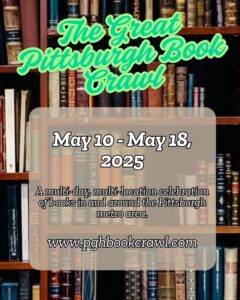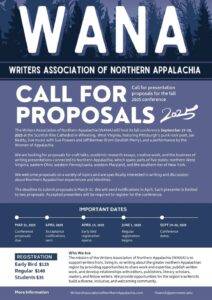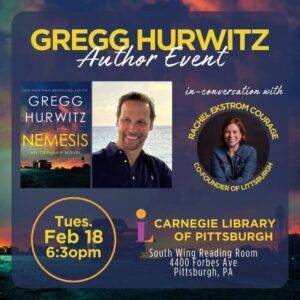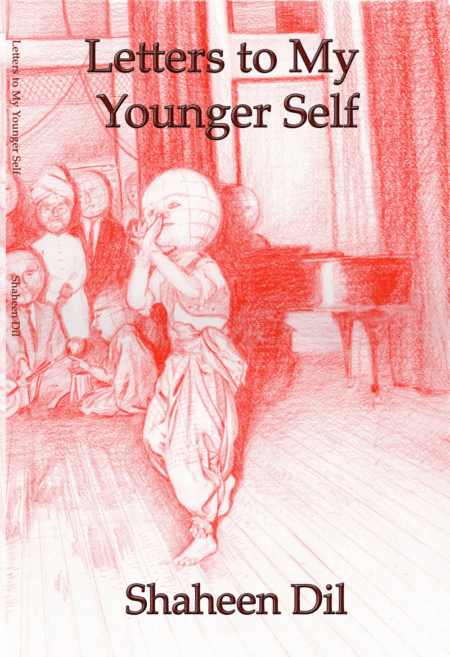The Bridge Series is a new series uniting the Pittsburgh literary and activist communities to raise awareness and funds for local organizations fighting the good fight in these troubling times. The series convenes the last Wednesday of each month at Brillobox and each installment will feature Pittsburgh’s finest writers and a special guest organization, with proceeds from the evening going directly to that organization.
The May 31st installment of The Bridge Series featuring the writers Yona Harvey, Brian Broome, and Cheryl Hall-Russell — and the guest organization for the evening, Alumni Theater Company — was curated by writer and Bridge board member Deesha Philyaw.
Deesha Philyaw is the co-author of Co-Parenting 101: Helping Your Kids Thrive in Two Households After Divorce, written in collaboration with her ex-husband. Her writing on parenting, race, gender, and pop culture has appeared in The New York Times, The Washington Post, EBONY, Essence, The Pittsburgh Post-Gazette, Pittsburgh CityPaper, Full Grown People, brevity, Dead Housekeeping, The Establishment, Catapult, ESPN’s The Undefeated, and elsewhere. Deesha’s work includes a Notable Essay in The Best American Essays 2016 and a forthcoming short story in Apogee Journal. At The Rumpus, she inaugurated and curates an interview column called VISIBLE: Women Writers of Color. Deesha is a fellow at the Kimbilio Center for African American Fiction. She is currently working on a novel as a well as a short story collection called The Secret Lives of Church Ladies.
How does writing relate to activism?
Words are powerful. Stories are powerful. Black women telling our own stories are powerful. It’s an act of self-love and resistance when we do so. Writing is a form of self-care and self-preservation which, for Black women, are “acts of political warfare.” So sayeth Audre Lorde.
How has activism influenced or affected your writing?
Telling stories that defy convention and present Black people as fully realized and complicated and not in relation to white people is political. It’s defiant. And after this last election and within this current political climate of fear and hate and violence, asserting the full humanity and richness of Black people and Black culture through writing, fiction and nonfiction, feels very necessary.
What are the goals of The Bridge Series? How does it fit into the local literary scene?
Our goal is to unite the activist and literary communities in Pittsburgh. I believe we bring first-rate readings from first-rate writers and some much-needed, intentional diversity to the local literary scene. I skip a lot of local lit events because I see no evidence of any attempt to diversity the presenter line-up.
Why did you invite Alumni Theater Company to be the guest organization this month? Tell us a little about their mission.
ATC is an experience. Their work is always fresh, provocative and timely, whether it’s a performance of published material like Ntozake Shange’s for colored girls who have considered suicide when the rainbow is enuf or original productions like The Transcendents, which featured this talented youth ensemble acting, singing, and dancing to works they wrote, composed, and choreographed. And that time they blended Green Day’s punk rock musical American Idiot with Afropunk? Brilliant. The mission of ATC is to create bold theatrical work that gives fresh voice to the experience of young urban artists and highlights their rich contribution to the local community.
Is there a particular writer, book, or poem that has influenced you as a literary activist that you’d like to shine some light on?
It’s a three-way tie: James Baldwin, Toni Morrison and Alice Walker. Morrison and Walker inspire me to write unapologetically about dissatisfied women. And Baldwin said, “Artists are here to disturb the peace,” and those are pretty clear marching orders.
What advice would you give to local writers who want to have their voices heard?
Say something worth hearing. Write past your own nose. Let a journal entry be a journal entry. Not everything you write deserves an audience. Write and rewrite and rewrite and rewrite. Revision is where the real writing happens. Writing is work. Good writing is work.
What do you hope the audience will walk away with after this event?
Yona, Brian and Cheryl are three very different, very powerful writers, so the audience is in for a rich experience. I hope they will leave feeling challenged, emboldened and entertained.

























